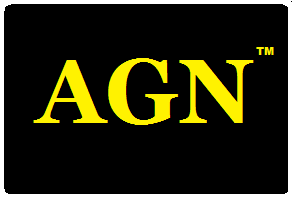





HISTORY Part VII: Historical Lessons learned from power hungry leaders, crimes against humanity, terrorism, and justice in 1940
AGN Life: Part VII
December 6, 2022
WASHINGTON (AGN.News) – This is Part VII of our Historic Lessons series. History can be defined as the study and documentation of the past. This history is a record of past events in 1940.
History is a record of inventions. History is a record of people and their accomplishments, of governments and their successes and failures. History offers us a window into the future.
“History” is an umbrella term comprising facts of past events as well as the memory, discovery, collection, organization, presentation, and interpretation of past events
1940 Historical politically-motivated events
1940 was year seven since the Nazis came to power with Adolf Hitler as the leader of the Nazi party. Now, after at least four years of war preparation, the Nazis were ready for war.
On March 18, 1940 Benito Mussolini and Adolf Hitler meet at Brenner Pass where the Italian dictator agrees he will, in due course, join Germany’s impending war effort in the west.
On May 10, 1940, Winston Churchill succeeds Neville Chamberlain as British Prime Minister of Great Britain.
Nazi Germany’s blitzkrieg succeeds
On May 12, 1940, Nazi blitzkrieg and conquest of France begins with the crossing of the Muese River.
The Nazi blitzkrieg is described as a surprise attack using a rapid, overwhelming force concentration that may consist of armored and motorized or mechanized infantry formations, together with close air support.
The intent of a blitzkrieg is to break through the opponent’s lines of defense, then dislocate the defenders, unbalance the enemy by making it difficult to respond to the continuously changing front, and defeat them in a decisive battle of annihilation.
In effect, a blitzkrieg is used in connection to quick or lightning warfare. The Nazis used this type of success in the warfare campaigns between 1939 and 1941.
Allied forces unite in World War II
On May 13, 1940, British Prime Minister Winston Churchill says “I have nothing to offer but blood, toil, tears and sweat” in his first speech to British House of Commons.
On May 27, 1940 British and Allied forces begin the evacuation of Dunkirk (Operation Dynamo) during WW II.
On June 4, 1940, The British complete the “Miracle of Dunkirk” by evacuating 338,226 allied troops from France via a flotilla of over 800 vessels including Royal Navy destroyers, merchant marine boats, fishing boats, pleasure craft and even lifeboats.
On June 14, 1940, Auschwitz concentration and extermination camp opens in Nazi controlled Poland with Polish POWs, later expanded to include civilian Jews and gypsies (approx. 3 million would die within Auschwitz’s walls).
Britain takes on Nazi Germany
On June 15, 1940, France surrenders to NAZI Germany as German troops occupy Paris in the first year of World War II, that began on September 1, 1939.
On June 18, 1940, Winston Churchill’s “this was their finest hour” speech urging perseverance during Battle of Britain delivered to British House of Commons.
World War II: the Battle of Britain
On July 10, 1940, The Battle of Britain begins as Nazi forces attack shipping convoys in the English Channel.
On Jul, 16, 1940, Adolf Hitler orders the Nazis to start military preparations for the invasion of Britain (Operation Sealion).
On August 18, 1940, The Battle of Britain: The air battle known as “The Hardest Day” occurs; Luftwaffe lose approximately 69 aircraft and the RAF lose 68 in one of the largest ever air battles.
On August 20, 1940, British Prime Minister Churchill said of the Royal Air Force, “Never in the field of human conflict was so much owed by so many to so few”.
The Nazis fail in their aggression
On September 7, 1940, The Blitz starts, as the German Luftwaffe bomb London for the 1st of 57 consecutive nights losing 41 bombers as the Nazis prepare to invade Britain.
On September 15, 1940, Battle of Britain Day: climax of the Battle of Britain, tide begins to turn as the Royal Air Force repulses a major Luftwaffe attack, losing 29 aircraft to the Germans’ 57-61.
On September 17, 1940, after experiencing a catastrophic loses in just one month of the air war, Adolf Hitler indefinitely postpones Operation Sealion, the planned German invasion of Great Britain.
Nazi Blitz set fires to London
On November 15, 1940, The Nazis dropped a steady stream of incendiary bombs on London setting fires to critical infrastructure across London.
On December 8, 1940, The Nazis increased the number of incendiary bombs on London causing fires to ignite a range of critical infrastructure across London.
On December 29-30, 1940, The Second Great Fire of London occurred (first Great Fire of London in 1666). It was caused by one of the most destructive air raids of the Blitz during World War II.
The fires started by the air raid included an incendiary bomb that broke through the dome of St Paul’s Cathedral, which was being guarded by a fire watch team at the behest of the Prime Minister Winston Churchill.
The Nazis dropped approximately 100,000 (mostly small incendiary) bombs on the city. The Germans dispatched 136 bombers to bomb the city of London. Fewer incendiaries were dropped than in the raids of November 15th or December 8th.
The Nazi air raid on London was focused on a part of the city that contained many business areas, and non-residential buildings, such as churches, offices, and warehouses.
Germany: 12 Years of The Third Reich
History: Nazi Germany (officially known as the German Reich from 1933 until 1943, and the Greater German Reich from 1943 to 1945) was the German state between 1933 and 1945, when Adolf Hitler and the Nazi Party controlled the country, transforming it into a dictatorship.
The Third Reich, which Hitler and the Nazis referred to as the Thousand-Year Reich, ended in May 1945 after just 12 years when the Allies defeated Germany, ending World War II in Europe.
Highlights of the Nazi Third Reich
On January 30, 1933, Hitler was appointed chancellor of Germany, the head of government, by the president of the Weimar Republic, Paul von Hindenburg, the head of state.
On March 23, 1933, the Enabling Act was enacted to give Hitler’s government the power to make and enforce laws without the involvement of the Reichstag or president.
The Nazi Party then began to eliminate all political opposition and consolidate its power. Hindenburg died on August 2, 1934, and Hitler became dictator of Germany by merging the offices and powers of the chancellery and presidency.
A national referendum held 19 August 1934 confirmed Hitler as sole Führer (leader) of Germany. All power was centralized in Hitler’s person and his word became the highest law.
The government was not a coordinated, co-operating body, but a collection of factions struggling for power and Hitler’s favor. In the midst of the Great Depression, the Nazis restored economic stability and ended mass unemployment using heavy military spending and a mixed economy.
Using deficit spending, the regime undertook a massive secret rearmament program, forming the Wehrmacht (armed forces), and constructed extensive public works projects, including the Autobahnen (motorways). The return to economic stability boosted the regime’s popularity.
Nazis: “The Master Race” was a myth
Racism, Nazi eugenics, and especially antisemitism, were central ideological features of the regime. The Germanic peoples were considered by the Nazis to be the master race, the purest branch of the Aryan race.
Discrimination and the persecution of Jews and Romani people began in earnest after the seizure of power. The first concentration camps were established in March 1933.
They billed themselves as conservative and launched a campaign of terror against those not worthy of being “German”. This included various groups of German citizens.
Jews, liberals, socialists, communists, and other political opponents and undesirables were imprisoned, exiled, or murdered. Christian churches and citizens that opposed Hitler’s rule were oppressed and many leaders imprisoned.
Education was focused on racial biology, population policy, and fitness for military service. Career and educational opportunities for women were curtailed. Recreation and tourism were organized via the ‘Strength Through Joy’ program.
The 1936 Summer Olympics showcased Germany on the international stage. Propaganda Minister Joseph Goebbels made effective use of film, mass rallies, and Hitler’s hypnotic oratory to influence public opinion.
The government controlled artistic expression, promoting specific art forms and banning or discouraging others.
While the German invasion of the Soviet Union in 1941 was initially successful, the Soviet resurgence and entry of the United States into the war meant that the Wehrmacht (German army) lost the initiative on the Eastern Front in 1943 and by late 1944 had been pushed back to the pre-1939 border.
Large-scale aerial bombing of Germany escalated in 1944 and the Axis powers were driven back in Eastern and Southern Europe. After the Allied invasion of France, Germany was conquered by the Soviet Union from the east and the other Allies from the west, and capitulated on 8 May 1945.
The end of Hitler and The Third Reich
Hitler’s refusal to admit defeat led to massive destruction of German infrastructure and additional war-related deaths in the closing months of the war.
The victorious Allies initiated a policy of denazification and put many of the surviving Nazi leadership on trial for war crimes at the Nuremberg trials.
Joachim von Ribbentrop, the Nazi Foreign Minister who gave his undying support to Hitler and the Holocaust, was arrested in June 1945, Ribbentrop was convicted and sentenced to death.
Ribbentrop was in court and tried at the Nuremberg trials for his role in starting World War II in Europe and enabling the Holocaust. On 16 October 1946, he became the first of the Nuremberg defendants to be executed by hanging.
Lessons: What we learned from history!
Power-hungry, ambitious leaders, and those who follow them look like they are the ultimate power, the leaders of a movement of highly motivated people, ready to defend their leader at whatever cost.
These Historical Lessons (1-7) are proof that because these leaders are on the wrong side of history, they will ultimately fail and those of their followers will meet justice.
In the 1920s and 1930s, Hitler and his Nazi supporters felt they were going to rule the world for a thousand years as the Third Reich. Hitler died and his movement died with him.
Lesson: Corrupt leaders always lose
It only lasted just 12 years. Among the many things we’ve learned is this: power-hungry leaders who commit crimes against their fellowman, against humanity, promote terrorism, division, strife amid injustice will fail.
In Roman mythology, Cacus, (meaning bad) was a fire-breathing giant and the son of Vulcan. He was killed by Hercules after terrorizing the Aventine Hill before the founding of Rome. This is the fate of all power-hungry corrupt leaders, like Hitler, the most corrupt leader of the 20th century.
These historic events can prove to be a lesson for ordinary people. Have respect, proper conduct and behavior towards ones fellowman, ones neighbor, ones community, ones country, universal laws, law enforcement, and ones family.
Historical Lessons… encourages and promotes the positive of an idea which leads to building better communities while the negative of an idea leads to suspicion, accusations, conspiracy theory, and a less than ideal outcome.
Historical Lessons on crime, antisemitism, hate, and injustice against ordinary people by those with extreme ideology can motivate any open-minded person to weigh and prioritize the facts over conspiracy theories and disinformation. Positive will always triumph (good) over negative (evil).
#GoldOverBlack
COVID-19 PREVENTION
STOP THE SPREAD! GET VACCINATED!
VACCINES ARE AVAILABLE FOR FREE!
Everyone is being urged by the Centers for Disease Control (CDC.gov) to get vaccinated, wear masks, practice social distancing, and wash hands as a way to cut down on the transmission rate.
For more information on local responses to the novel coronavirus also called … COVID-19, contact your local healthcare provider, visit coronavirus.gov or visit cdc.gov for the United States response to the coronavirus.
News you can use! Enjoy the best of news from your community by Alphabet Global News.
ALPHABET GLOBAL NEWS

Reliable. Trusted. Local. News.
On Mobile … Fast!
Written by
AGN.News Team
Disclaimer: This post does not represent the views or viewpoint of the owner of AlpLocal.com, AGN News or its representatives or reporters. Any content which references any person, entity or group with similar names, descriptions, or business interest in any geographical location or similar businesses is merely a coincidence and not directed at said business. AGN News is compiled from submissions by contributors or other sources. We are not responsible for information found on external links. Those clicking on these type of links bear sole responsibility for visiting these sites.
![]()
![]()
![]()
![]()
![]()







